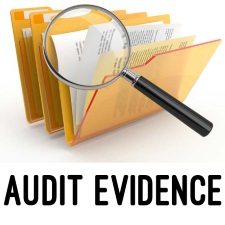Computer based accounting | Merits & Demerits to Auditors
Advantages or merits of Computerized accounts to Auditors
1. The operating system does all the complex and tedious tasks and the auditor’s job is made easier.
2. It saves time and reduces manual work to a great extent.
3. EDP environment encourages decentralization of processing of data. Thus, the reports, required by the management can be obtained at any time and the management can take quick action based on such reports.
4. Decision-making is a vital function of the top management. Marginal costing techniques and operations research techniques are mere tools used by the management for decision-making. However, the Decision Supporting System and Artificial Intelligence not only analyze a business situation but also make decisions on behalf of the management (These systems are now being introduced in many organizations on an experimental basis).
5. Sophisticated software, which help the auditor in forming his opinion, are now being developed through Computer aided software engineering and Data Base Management Systems.
6. Electronic Data Interchange and other Computer Software / Hardware systems have reduced the cumbersome paper work in the auditor’s office.
7. The audited balance sheets and other financial statements are now accepted by the Income Tax authorities and by the Registrar of Companies in electronic media.
8. Traditional data entry is prone to errors and frauds. Voice recognizing system and scanners have replaced the traditional data entry and have made the work easy and less prone to errors.
9. The Real Time Processing has tremendously improved the Stock-keeping and share market operations.
10. Bank balances can be verified and confirmed online.
As the EDP environment develops, its advantages also keep increasing. The above are only some of the advantages in the field of accounting and auditing in EDP environment.
Disadvantages or Demerits or Problems faced in the audit of Computerized Accounts
1. An auditor cannot physically observe the process of accounting in computerized system. i.e., visual observation of the processing is denied.
2. An auditor cannot ensure that the procedure followed in processing is proper.
3. The procedure may be changed by intervention or by malicious codes. This may not come to the knowledge of the auditor.
4. The actual procedure followed may be quite different from the standard procedure to be followed.
5. The source document, intermediate document and reports are eliminated completely or partially. Therefore, the auditor may not be able to trace the data from the source. In other words, one can say “Audit trail” disappears totally or partially with computerization of accounts.
6. The ‘source code‘ given and the ‘object code‘ used may not agree with each other. It creates a major problem for the auditors.
7. To ensure efficiency in operation, many banks have introduced real-time processing wherein every transaction of the branches is processed immediately by the head office through the computers.
Though this system is extremely efficient, the insufficiency in the availability of infrastructure facility hinders the operation of the system. Sometimes, it so happens that the branches in the remote areas wait for several hours for the system to process one transaction. This affects the auditor in performing the concurrent audit.


